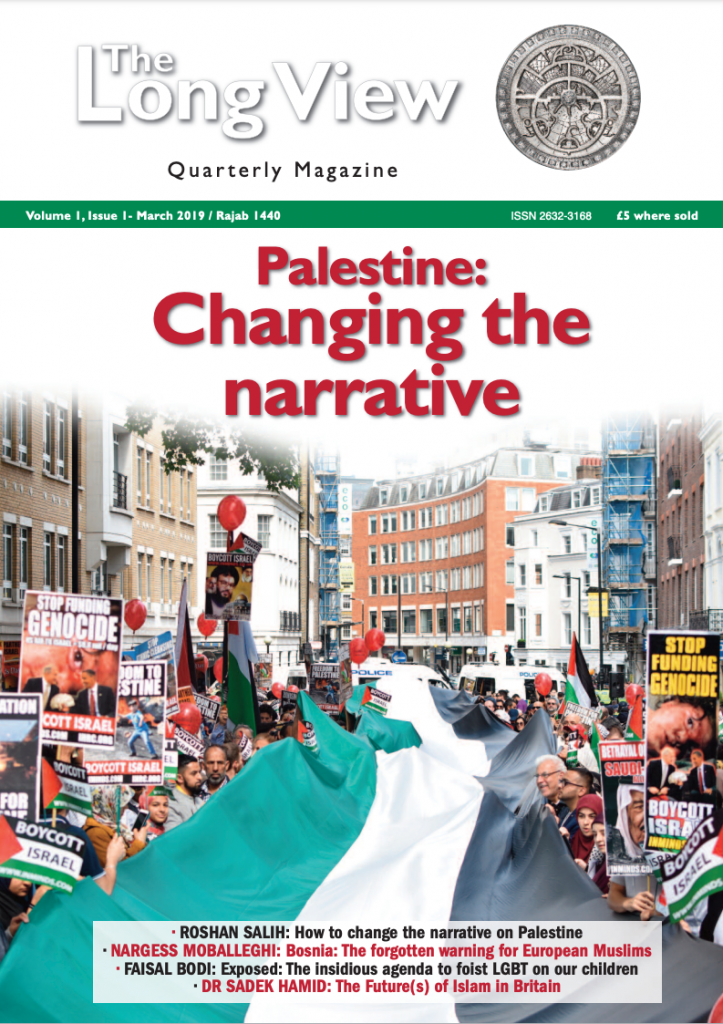The Future(s) of Islam in Britain and lessons from Bosnia
Volume 1 – Issue 1 – March 2019 / Rajab 1440
Editorial
Welcome to the first issue of The Long View, a quarterly magazine from Islamic Human Rights Commission (IHRC). As the name suggests, the essays commissioned for this journal aim to look in depth and look forward. The type of work that occupies IHRC and other human rights and social justice organisations, is often by necessity a response to ongoing events. Whether it is limits on funds and human resources, or just the scale of immediate problems that need immediate solutions, reactive work and analyses are the norm of Muslim and indeed wider civil society particularly in Westernised* settings.
The Long View attempts to provide a space for thinkers to analyse in the long term and (kick)start or continue conversations on the same. The works herein are accessible but require that little bit longer to read than a daily op-ed or social media friendly text. It requires bucking the trend for soundbites and easy platitudes. The effort must surely be worth it?
Saied R. Ameli, whose academic oversight of IHRC’s research work has been crucial to its success has written extensively about the need for Future Studies in civil society planning. In this issue Sadek Hamid applies this idea to the situation of Muslims in the UK, outlining how Future Studies can be used to map out various scenarios and challenges community organisations to begin this process. The three scenarios he maps out work from optimistic to pessimistic. This latter chimes with Narges Moballeghi’s reflections on her visit to Bosnia in 2017 and the impact this had on her. Too young to remember the conflict in Bosnia, her discovery of the history of the genocide and in particular the lead up to it cause her concern regarding the current state of Muslim communities in Europe today. She asks what can be learned and why is it that key lessons are not being discussed.
Faisal Bodi looks in detail at the proposals by the UK government for compulsory sex education in schools. Charting the developments in the policy and the backlash from Muslim, Christian and Jewish parents, Bodi highlights the hypocrisy of policy making regarding ‘minority’ issues by the current government. Forward thinking – here evidenced in part by the campaigns by various groups, advocates and parents – has brought about short-term results.
The solidarity between faith communities in this case is mirrored in the key article of this issue, by Roshan Salih. Thinking about solidarity for Palestine, Salih calls on Muslim organisations and leadership to eschew their current positions of submission to and fear of the losing favour or incurring the wrath of authorities, and to make a principled stand for Palestine. Not only is this solidarity in Salih’s view crucial to righting the wrongs done to the Palestinians, it is simply the right and moral thing to do.
The Long View does not seek cynical and Machiavellian outlooks, and Salih’s premise of morality as an increasingly lacking facet of our contemporary lives is an apt place to leave this overview.
We hope you take time to engage with the ideas and give us feedback via any of the platforms below.


